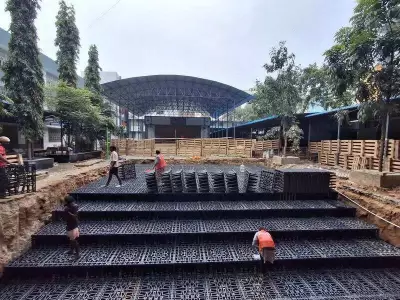
Justice Surya Kant, who is set to become the next Chief Justice of India, has clearly outlined his priorities for the Indian judiciary. In his first public address after being appointed as CJI-designate, Justice Kant emphasized that tackling the enormous pendency of cases and encouraging mediation will be at the forefront of his agenda.
A Focus on Reducing Judicial Backlog
Speaking at a function organized by the Supreme Court Bar Association (SCBA), Justice Surya Kant acknowledged the severe challenge posed by the massive backlog of cases across Indian courts. He stressed that addressing this pendency is not just a professional duty but a constitutional obligation for the judiciary. The judge, who will take oath as the 51st Chief Justice of India on July 12, 2024, highlighted the need for systematic reforms to ensure timely justice delivery to millions of citizens.
Justice Kant's appointment comes at a crucial time when the Indian judiciary is grappling with over 5 crore pending cases across various levels. His extensive experience, having served as a judge at the Punjab and Haryana High Court and later as a Supreme Court judge since February 2021, positions him uniquely to tackle this monumental challenge.
Mediation as a Primary Tool for Dispute Resolution
One of the key strategies Justice Kant emphasized for reducing case backlog is the promotion of mediation. He described mediation as a "tool for social engineering" that can help resolve disputes amicably while reducing the burden on conventional courts. The CJI-designate pointed out that many disputes, particularly those involving family matters and commercial conflicts, are better suited for mediation than prolonged litigation.
Justice Kant revealed that he has already initiated discussions with senior judges to develop a comprehensive plan for establishing mediation centers across the country. These centers will be equipped with trained mediators and proper infrastructure to facilitate out-of-court settlements. He believes that making mediation more accessible and credible will encourage more litigants to opt for this faster and less adversarial method of dispute resolution.
Leveraging Technology for Judicial Efficiency
Beyond mediation, Justice Surya Kant also highlighted the importance of technology in modernizing the judicial process. He praised the efforts made during the COVID-19 pandemic in adopting virtual hearings and digital filing systems. The CJI-designate committed to building on these technological advancements to create a more efficient and transparent judiciary.
Specific technological initiatives he mentioned include expanding the e-courts project, improving digital infrastructure in lower courts, and developing AI-assisted tools for case management. Justice Kant emphasized that technology should serve as an enabler for justice, not as a replacement for human judgment, ensuring that the personal touch in justice delivery remains intact.
A Collaborative Approach to Judicial Reforms
Justice Surya Kant stressed that achieving these goals requires collaboration between the judiciary, bar, and government. He called for a "whole system approach" where all stakeholders work together to address the challenges facing the judicial system. The CJI-designate specifically acknowledged the important role of lawyers in the administration of justice and promised to work closely with bar associations across the country.
Justice Kant will have a relatively short tenure of about one year and three months, retiring on November 25, 2025. Despite this limited time, he expressed confidence that significant progress can be made through focused efforts and collective action. His vision includes not just reducing pending cases but also improving access to justice for marginalized communities and strengthening public trust in the judicial system.
The function was attended by several dignitaries including Supreme Court Bar Association President Adish Aggarwala, Senior Advocate Vikas Singh, and many sitting judges of the Supreme Court. The legal community has largely welcomed Justice Kant's appointment and expressed optimism about his agenda for judicial reforms in India.





